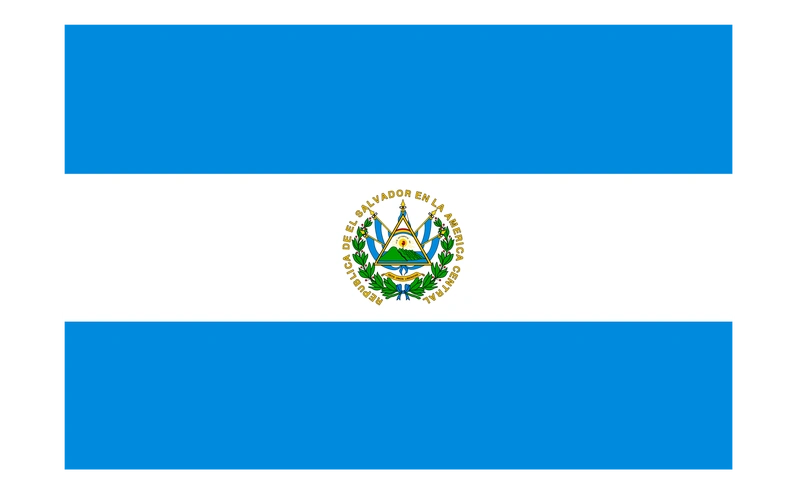
- No major economy has yet included Bitcoin in its national reserves, though countries like El Salvador have taken exploratory steps.
- Unclear regulations, high volatility, technical risks, and resistance from traditional finance are the main obstacles.
- Bitcoin may first be adopted as a national reserve asset by smaller nations and emerging economies.
TABLE OF CONTENTS

Although Bitcoin is attracting attention for its innovation and potential value, its volatility and technological uncertainties make it challenging to quickly become a national reserve asset. In the future, as the global financial system evolves, Bitcoin could gradually integrate into national reserve systems, becoming a key part of financial diversification.
CURRENT GLOBAL STATUS
To date, while many countries and regions have shown significant interest in cryptocurrencies, no major economy has officially announced Bitcoin as part of its national reserves. However, several nations and regions have taken exploratory steps in this direction:
1. El Salvador
El Salvador is the first country in the world to adopt Bitcoin as legal tender, marking a significant milestone in cryptocurrency adoption. While this is different from directly incorporating Bitcoin into national reserves, its national Bitcoin trust fund and widespread promotion initiatives demonstrate a strong endorsement of Bitcoin.

2. United States
Some politicians and business leaders in the U.S. have proposed including Bitcoin in the country’s national reserves. These suggestions highlight Bitcoin’s increasing relevance in the U.S. financial landscape, although such proposals have yet to receive official approval. The cautious stance of the Federal Reserve and the U.S. Treasury makes this process highly uncertain.

3. Other Countries and Regions
Other smaller economies and regions have also expressed interest in Bitcoin. For example, certain African and Southeast Asian countries are exploring Bitcoin as a reserve asset or payment tool. While these initiatives are limited in scale, they provide inspiration for Bitcoin’s broader adoption.
Also Read:
Trump to Address Bitcoin 2024 Conference, Bolstering Crypto Credentials
WHY PROGRESS IS SLOW
Despite Bitcoin’s appeal, incorporating it into national reserves faces significant challenges:
1. Regulatory Challenges
Globally, the legal status of cryptocurrencies remains ambiguous, and many countries lack a unified regulatory framework. This uncertainty makes it difficult for governments to integrate Bitcoin into mainstream financial systems.
2. Market Volatility
Bitcoin’s price is highly volatile, making it incompatible with the stability required of national reserve assets. For countries relying on reserve assets to maintain economic stability, this unpredictability is a major concern.
3. Technological Risks
Blockchain technology is still evolving and faces challenges such as security vulnerabilities and technical upgrades. Issues like cross-chain interoperability, storage efficiency, and transaction speeds require further optimization.
4. Resistance from the Traditional Financial System
Traditional financial institutions have been slow to accept Bitcoin, and its challenge to the existing monetary system may face strong opposition from entrenched interests.
KEY CONSIDERATIONS FOR INCLUSION IN NATIONAL RESERVES
When evaluating whether to include Bitcoin in national reserves, governments must consider the following factors:
1. Economic Stability
Would Bitcoin’s volatility pose risks to the nation’s economic security?
2. Financial Sovereignty
Would incorporating Bitcoin undermine the independence of monetary policy, especially in the context of international financial competition?
3. Technological Maturity
Is Bitcoin and its underlying blockchain technology secure and efficient enough to serve as a reserve asset?
4. International Cooperation
How would integrating Bitcoin into reserves affect the country’s relationships and cooperation with other nations?
FUTURE OUTLOOK AND CONCLUSION
Bitcoin’s potential as a national reserve asset is gaining attention, but achieving this goal requires overcoming numerous challenges. As regulatory frameworks improve, market volatility decreases, and technology advances, Bitcoin’s prospects as a reserve asset remain promising.
Smaller economies may take the lead in experimenting with Bitcoin as a reserve, providing valuable case studies for larger nations. Additionally, the diversification and decentralization of the international financial landscape offer opportunities for Bitcoin to claim its place as a reserve asset.
Although major economies currently remain cautious, financial innovation and policy evolution may pave the way for Bitcoin to become an integral part of national reserve systems in the coming years. This shift will depend not only on Bitcoin’s performance but also on the economic needs of nations and the broader transformation of the global financial system.
CoinRank x Bitget – Sign up & Trade to get $20!






















